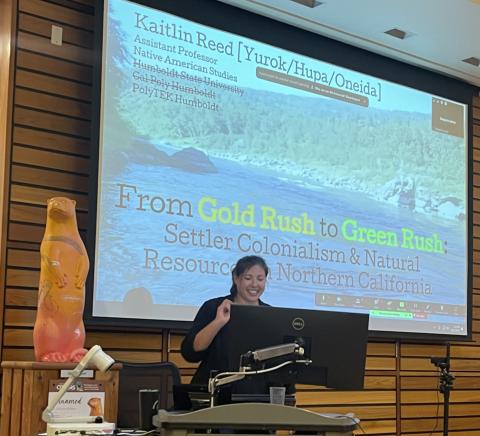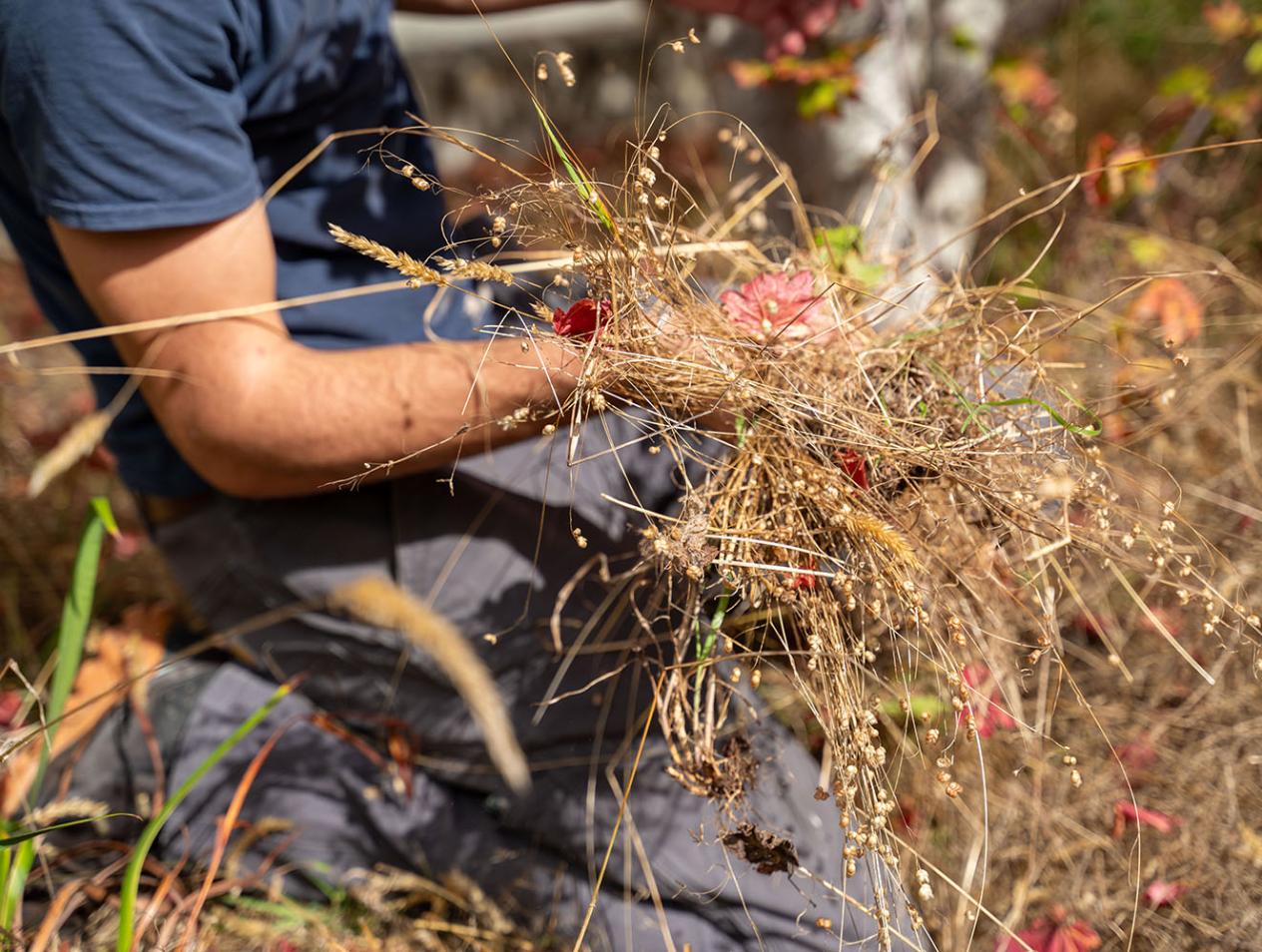Breadcrumb
Traditional Ecological Knowledge (TEK)
Rooted in cultural traditions and spiritual relationships with the land, Traditional Ecological Knowledge (TEK) encompasses an understanding of ecological relationships, resource management, and sustainability that is passed down through generations via oral histories, ceremonies, and lived experiences.
Unlike Western scientific approaches, TEK integrates observation with values, ethics, and community responsibilities, offering holistic perspectives that are vital to environmental stewardship and resilience in the face of climate change and ecological degradation.
TEK Faculty Fellow

The TEK Faculty Fellow is a Cal Poly Humboldt faculty member whose role is to promote Traditional Ecological Knowledge (TEK) and Indigenous Science within the university system. The NAS Department’s own Dr. Kaitlin Reed is serving as the inaugural TEK Faculty Fellow for the 2023-2024 academic year. Learn more about Dr. Reed and her work.
The TEK Faculty Fellow works closely with the Provost & Vice President of Academic Affairs to use allocated resources to plan, design, and support professional development and other institutional structures that integrate Traditional Ecological Knowledge, Indigenous Science, and Indigenous Sovereignty into teaching and learning at Cal Poly Humboldt. The TEK Faculty Fellow has a specific emphasis on exploring intersections with the way the campus teaches sustainability topics and collaborates with numerous partners on campus, including the Rou Dalagurr Food Sovereignty Lab & Traditional Ecological Knowledges Institute.
Decolonizing Sustainability Speaker Series
The Decolonizing Sustainability Speaker Series is intended to highlight and unpack intersections of settler colonialism, white supremacy, and systems of power/privilege/oppression within the discourse and rhetoric of contemporary sustainability, environmental, and climate change movements.
Faculty Book Circle
The Native American Studies Department, Center for Teaching and Learning, Office of Sustainability, and Office of the Provost have partnered to host a faculty book circle focused on intersections of Indigenous Knowledge and environmentalism. In this book circle, we engage with texts by Indigenous scholars and discuss how to incorporate Indigenous knowledge and praxis into our work in ethical and sustainable ways.






